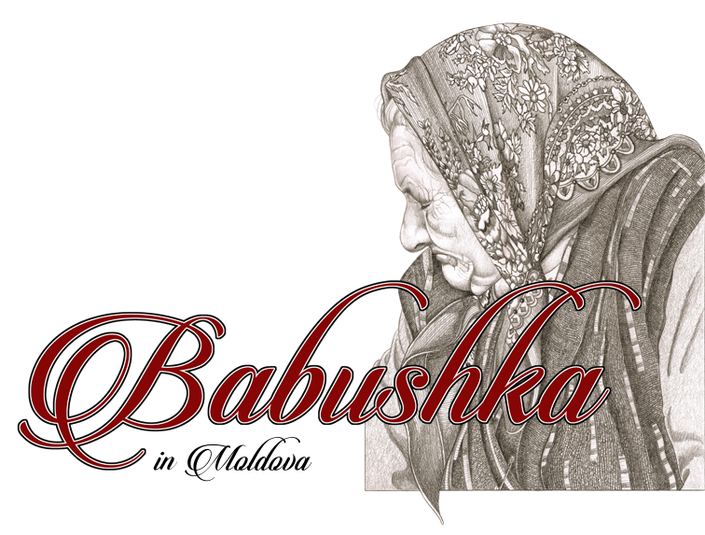In case you don't know, it's the Russian word for "grandmother". It can also be a verb which means to spoil, pamper and coddle. Hopefully, you've experienced that first hand. And, if you did know the word, there's a very good chance that you have mispronounced it. The accent is on the first syllable, not the second.
Okay, there may be lots of stereotypes about babushkas, but from my experience a lot of them still hold true. Babushkas are elderly women and they always seem to have on a headscarf. And, if you are a grandmother worthy of any of your stereotypes, you know how to prepare your borscht specialty, whip up plăcintă with your eyes closed, feed your family and guests at a moment's notice (whether they are hungry or not), care for any newborn member of the family, tend to medical emergencies and advise anyone on any subject at any time of the day or night because just like mama, you know best.
So, from the above list, I savored borscht and plăcintă, received medical care in a time of need and got a healthy amount of advice. In Chisinau, I encountered a babushka at my mural project. Technically, she'd be a "bunică" in Romanian, but I still always called her "the babushka".
On my first morning of muraling, I moved some equipment from storage to the painting site. I don't know what I did, but "the babushka" decided to put me in my place. I got a serious tongue lashing - in Romanian - from a woman I knew was none too happy with me. I smiled politely and said, "Sorry, I only speak English." That didn't stop her for a second. The tongue lashing continued. Again, I reminded her that I only spoke English. I don't think she ever fully forgave me. Fortunately, I received a lot of positive attention from other grandmothers who crossed my path, and most of it had to do with food.


 RSS Feed
RSS Feed